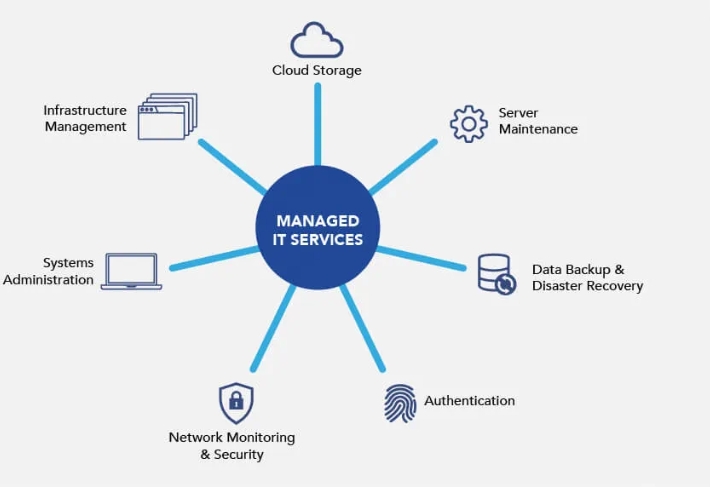The Importance of Cyber Security
Protecting User Data
Cyber security is essential in protecting user data from unauthorized access and theft. With millions of users relying on Google services every day, from email to cloud storage, safeguarding this data is critical. Google employs advanced encryption techniques to ensure that data is secure, whether it’s being transmitted or stored. This protection is vital in maintaining user trust and preventing personal information from falling into the wrong hands.
Preventing Cyber Attacks
Google faces a constant barrage of cyber-attacks from hackers attempting to breach its systems. These attacks can range from phishing scams to more sophisticated attempts to infiltrate Google’s infrastructure. To combat these threats, Google has developed a multi-layered approach to cyber security, using both automated systems and human expertise to detect and respond to potential threats quickly.
Google’s Cyber Security Tools and Strategies
Google Safe Browsing
One of Google’s most well-known cyber security tools is Google Safe Browsing. This service scans billions of URLs daily, identifying potentially harmful sites and warning users before they can visit them. By blocking access to these sites, Google helps prevent users from falling victim to phishing scams and malware attacks. Safe Browsing is integrated into popular browsers like Chrome and Firefox, offering widespread protection for internet users.
Google Cloud Security
As more businesses move their operations to the cloud, Google Cloud Security has become a critical component of the company’s cyber security strategy. Google Cloud offers a range of security features, including data encryption, identity management, and threat detection, to protect customer data stored on its servers. Additionally, Google Cloud’s security infrastructure is designed to meet the strictest industry standards, ensuring that businesses can operate securely in the cloud.
Advanced Protection Program
For users who require extra security, Google offers the Advanced Protection Program. This program provides enhanced security measures for high-risk users, such as journalists, activists, and political campaign teams. The Advanced Protection Program includes features like stronger authentication processes and additional safeguards against phishing attacks. By offering this program, Google helps protect those who are more likely to be targeted by sophisticated cyber threats.
Google Security Keys
Google has also introduced physical security keys as an additional layer of protection for user accounts. These keys provide two-factor authentication, requiring users to insert the key into their device in addition to entering their password. This method significantly reduces the risk of account takeovers, as it prevents attackers from accessing accounts even if they have obtained the user’s password. Security keys are especially useful for individuals and organizations that need a higher level of security for their accounts.
Google’s Role in Cyber Security Research
Project Zero
Google’s commitment to cyber security extends beyond just protecting its own users. The company is also actively involved in cyber security research through its Project Zero initiative. Project Zero is a team of security researchers at Google dedicated to finding and fixing vulnerabilities in software, both within Google products and in third-party software. By discovering and disclosing these vulnerabilities, Project Zero helps improve the overall security of the internet.
Bug Bounty Programs
To further enhance its cyber security efforts, Google operates bug bounty programs that reward researchers for finding and reporting security vulnerabilities in Google’s products and services. These programs incentivize independent researchers to help Google identify and address potential security issues before they can be exploited by attackers. Over the years, Google’s bug bounty programs have paid out millions of dollars in rewards, contributing to a safer internet for all users.
The Future of Google Cyber Security
AI and Machine Learning
As cyber threats continue to evolve, so too must the strategies used to combat them. Google is at the forefront of incorporating artificial intelligence (AI) and machine learning into its cyber security efforts. By using AI, Google can analyze vast amounts of data to detect patterns and anomalies that may indicate a cyber threat. Machine learning algorithms can then adapt and improve over time, becoming more effective at identifying and responding to new types of attacks.
Collaboration with Industry Partners
Cyber security is a collective effort, and Google recognizes the importance of collaboration in this field. The company works closely with other tech giants, government agencies, and academic institutions to share knowledge and develop new solutions to emerging threats. Through initiatives like the Cybersecurity Tech Accord, Google is helping to build a more secure digital ecosystem for everyone.
Conclusion
Google’s comprehensive approach to cyber security demonstrates its commitment to protecting user data and maintaining the integrity of its services. From developing cutting-edge tools like Google Safe Browsing and the Advanced Protection Program to engaging in cyber security research through Project Zero, Google is leading the fight against cyber threats. As the digital landscape continues to evolve, Google’s ongoing investment in cyber security will play a crucial role in ensuring a safer internet for all.




